- About
- Academics
- Admissions & Aid
- Life
- Research
- News & Events
- Inauguration & Founder's Week
GENERAL EDUCATION
 Our general education courses ground students in African and African diasporic heritage while empowering students to integrate knowledge and skills from their academic and co-curricular experiences. We want students to become active participants in their learning. And as a historically all Black university, this means our general education program is distinctive in its deliberate use of texts, examples, perspectives, and principles of black people across time and from Africa and its diaspora. Students explore themes of social justice, equity, and protest across various disciplines. Students also demonstrate a breadth of learning and develop critical intellectual skills. We see general education as a starting point for life-long work that students continue as they pursue their major, graduate from Morehouse, and go out into the world.
Our general education courses ground students in African and African diasporic heritage while empowering students to integrate knowledge and skills from their academic and co-curricular experiences. We want students to become active participants in their learning. And as a historically all Black university, this means our general education program is distinctive in its deliberate use of texts, examples, perspectives, and principles of black people across time and from Africa and its diaspora. Students explore themes of social justice, equity, and protest across various disciplines. Students also demonstrate a breadth of learning and develop critical intellectual skills. We see general education as a starting point for life-long work that students continue as they pursue their major, graduate from Morehouse, and go out into the world.
Building a Foundation
-
Learning Outcomes
Outcomes
Morehouse College students who complete these courses can:
- Demonstrate integrative learning in Black life, history, and culture
- Communicate effectively
- Practice global citizenship
- Apply the principles of ethical leadership
- Identify, explore, and solve problems
- Demonstrate breadth and integration of learning across disciplines
- Engage identity and equity
DISTRIBUTION REQUIREMENTSTo reach these learning outcomes, students must complete the following general education requirements*:
CREDIT HOURS POINTS WRITING Skill English composition 3 WRITING Skill Critical writing 3 LANGUAGE Skill Through 201 or equivalent 0-9 MATHEMATICAL AND QUANTITATIVE LITERACY Skill One three or hour credit hour course that is at a level above college algebra 3-8 HEALTH AND WELLNESS Skill Activity and life skills requirement 1-2 ARTS AND LITERATURE Area One course 3 IDES AND ETHICS Area Two courses 6 SOCIETY AND CULTURE Area Two courses 6 SCIENTIFIC DISCOVERY Area Two courses 8 FYE/BLHAC Designation Two thematic area courses with the FYE designation n/a CROWN FORUM Area 40 33-48 40 *Writing courses are satisfied by a grade of C or higher. For all other courses, requirements are met with a grade of D or higher. Some general education courses may require a higher grade as a prerequisite.
OUTCOMES IN DETAIL
Success begins with identifying and codifying the right set of student learning outcomes, which set the college-level competencies we expect our students to attain. Individual courses, co-curricular activities, and the overall structure of the general education curriculum are designed for students to meet these learning outcomes.
Demonstrate Integrative Learning in Black Life, History, and Culture
- Analyze the histories, cultures, and peoples of Africa and its diaspora through multiple disciplines and critical perspectives, including but not exclusive to African-centered models
- Understand the diverse experiences, patterns, philosophies, and theories pertaining to Africa and its diaspora
Communicate Effectively
- Present ideas effectively and persuasively using writing, speech, and digital and emerging media
- Show patience and discipline to absorb others’ perspectives and ideas and to respond thoughtfully and professionally
Practice Global Citizenship
- Understand diverse communities, cultures, and nations, including the impact and contributions of other people
- Analyze pressing global problems
Identify, Explore, and Solve Problems
- Use different disciplines to identify issues in society worthy of challenge
- Think critically, innovatively, and responsibly to question and challenge those issues
- Work collaboratively and creatively to develop solutions
Apply the Principles of Ethical Leadership
- Understand major theories and models of ethical leadership and their implications
- Evaluate principles of ethics and justice from different disciplines and theoretical perspectives
- Apply principles of ethical leadership
Demonstrate Breadth and Integration of Learning Across Disciplines
- Be well-versed in the knowledge, ideas, big questions, and methods of discovery across a variety of disciplines
- Understand the relationship between and integrate knowledge, ideas, and methodologies from the arts, humanities, science and math, social sciences and business
- Demonstrate mastery of and a capacity to continue to learn technologies, tools and contemporary techniques for inquiry and analysis
Engage Identity and Equity
- Engage issues of identity—race and gender; sexuality; belief systems and religion; nationality; class; and others—both in self and in others
- Use theory to inform life experiences and vice versa
- Examine constructs of identity with rigor and emotional intelligence, all in the context of understanding and achieving equity
We introduce students to these goals in the general education curriculum, but we expect that students will continue to develop higher levels of competency in each of these learning outcomes within majors, minors, elective courses, and co-curricular experiences such as service learning, study abroad, internships, and mentored apprenticeships.
-
Program Structure
Program Structure
We expect students to achieve proficiency in the seven learning outcomes by completing general education requirements in three overlapping categories. We named these categories core skills, thematic areas, and designations. These categories help students, faculty, and other stakeholders understand and navigate the curriculum.
This curriculum exposes students to a breadth of knowledge, transdisciplinary and cross-disciplinary methods, and tools to see and work through problems using many disciplinary lenses. A critically important feature of the curriculum is the First-Year Experience designation, which will take the form of courses on the Black experience that incorporate both service learning and some of the Crown Forum requirements.
General education consists of a maximum of 48 credit hours. Students must also earn 40 points of Crown Forum credit, explained below. Except for the Crown Forum requirement, we expect students to complete their general education curriculum within their first two years.
WRITING CORE SKILL – 6 CREDIT HOURS
Educating students in writing has a long and important history at HBCUs and Morehouse in particular. Former Morehouse president Hugh Gloster ‘31 founded of College Language Association when Black people were not permitted to participate fully in MLA activities. The CLA is one example of our rich and complex writing tradition. It builds upon past work and recognizes that every discipline and every path students take after Morehouse requires college-level proficiency in writing. There are four principal learning objectives for students in writing courses.
- Clearly and effectively communicate through writing
- Critically analyze problems
- Apply research tools
- Integrate material, ideas, and texts from the African diaspora
Criteria
You must complete a set of courses designed to prepare you for more advanced writing. We assess first-year students to place and track their progress over time. We use portfolios and Blackboard to archive student work, measure their writing quality, and inform them of their progress.
Students fulfill general education writing requirements through:
- One three-credit-hour composition course
- One three-credit critical writing course introduces students to more advanced writing, higher levels of critical analysis, and research-based writing. Composition is a prerequisite for critical writing.
- First-year experience courses with intentional writing modules
- Students can transfer approved courses but cannot use exams to waive this requirement
- Advanced students may fulfill their composition and critical writing requirements by taking ENG 103 English Composition III.
LANGUAGE CORE SKILL – 0-9 CREDIT HOURS
Learning a foreign language is a critical step for our students to become global citizens. The Partnership for 21st Century Learning and the National Education Association stress how important it is for students to develop global competence by learning languages. At Morehouse, learning languages requires that students:
- Communicate effectively in a variety of situations
- Develop intercultural competence
- Make connections with other disciplines and perspectives
- Apply foreign language skills to academic and real-world settings
- Participate in a broader world of multilingual communities in the United States and abroad
Criteria
To fulfill the general education requirement, students must reach the level of Intermediate Low in a foreign language, as established by the American Council on the Teaching of Foreign Languages. All students must take a mandatory assessment upon admission to determine their placement and how many courses they need to fulfill the language requirement. Students can demonstrate the required level of language proficiency a number of ways:
- Taking modern foreign language or another foreign language through the 201 level.
- Completing a foreign language course at the 201 level or higher. Students may complete these courses on campus or through study abroad. In taking a series of language courses, students cannot skip the sequence.
- Taking the ACTFL oral proficiency examination and earn a minimum score of Intermediate Low.
- Earning a score of four on the AP Spanish, French, or German examination.
- Passing a CLEP Level two examination with a score of 63 or higher.
- Graduating from a high school with a Seal of Biliteracy.
- Holding an International Baccalaureate high school diploma.
- Transferring appropriate, approved work from another accredited institution.
MATHEMATICAL AND QUANTITATIVE LITERACY SKILL – 3-6 CREDIT HOURS
In today’s world, there is a growing need for people with the ability to work with numbers, quantities, and data sets in systematic ways. This is an essential skill, and fulfillment of this requirement will equip students to:
- Concisely and coherently communicate quantitative information, analysis, and conclusions
- Use the tools of mathematics to represent, analyze, and solve problems involving quantitative information
- Estimate, deduce, and infer quantitative conclusions using the systems, ideas, and theories of mathematics or statistics
- Understand the limits of quantitative evidence to draw conclusions
Criteria
Students must show competence in mathematics or statistics above the level of college algebra. We will assess students to determine their placement. Students fulfill the mathematical and quantitative reasoning requirement through:
- Math at or below College Algebra I (two to four credit hours). Earned either by placement or by coursework. At most three credit hours of mathematics at or below the level of College Algebra I will count toward fulfillment of the general education requirement. You may earn this by placement into a course at a level higher than college algebra.
- Math or statistics above College Algebra I (three to four credit hours). This can be a statistics course provided that the math department qualifies the course as being above this level of rigor. This cannot be earned by placement/ examination, but can be earned by approved transfer of credit.
HEALTH AND WELLNESS SKILL – 1-2 CREDIT HOURS
There is a critically important relationship between intellectual development and physical health. As such, we want to ensure that students understand what it means to be in good health, to know how to do so, and to engage in practices that ensure personal wellness. This will necessarily mean both physical activity and learning across areas ranging from food and sleep to understanding data and science around one’s body, particularly as it relates to black men’s health. Through this skill students will:
- Understand research-based, optimal life skills for personal wellness
- Recognize the importance of maintaining personal health and wellness throughout their lives
- Apply the seven dimensions of wellness: physical, spiritual, intellectual, emotional, environmental, occupational, and social
Criteria
Students must show competency in both the practical and theoretical aspects of health and wellness. They must engage in physical activity under appropriate supervision and will complete this requirement through the following:
- Physical activity course or equivalent, e.g., serving in the ROTC, or one year as a varsity athlete
- Completing a wellness course
ARTS AND LITERATURE AREA – 3 CREDIT HOURS
Artistic expression is an integral part of the human experience. In this area, students explore how artistic expression and the creative process bring about disruptive and innovative solutions. Art has the power to express ideas, feelings, and conditions of humanity in ways that are deeply moving. It captures the history and culture of a people. And it is one of the most fundamental creative acts that has utility but is certainly not bound by function. As a result of taking these courses, students will:
- Communicate effectively about the arts and literature
- Identify artistic, cultural and literary traditions and movements
- Understand theses and the contexts of creative production
- Understand principles of storytelling and artistic composition
- Critique various modes of human creative expression
Criteria
Students are required to complete:
- One three credit hour course in the area
- Students may also fulfill one of thier FYE requirements through designated courses in this area.
- This cannot be earned by placement/examination, but can be earned by approved transfer of credit if it can be reasonably determined that the course fits the rubric for the area.
IDEAS AND ETHICS AREA – 6 CREDIT HOURS
President Benjamin E. Mays claimed that Morehouse provided “education with a social conscience, a social concern; science has made the world a neighborhood, it is up to us—leaders in education and religion—to make it a brotherhood.” Similarly, Martin Luther King, Jr. insisted “intelligence plus character, that is the purpose of education.” Taking courses and seminars in this area critically examines existential questions and ethical systems, whether philosophical or religious, within a global context. As a result of taking courses in this area, students will be able to:
- Communicate about models of social responsibility, justice and ethical leadership
- Recollect ethical systems, sacred writings, and/or wisdom traditions in a larger global context
- Understand perennial questions including the meaning and purpose of life, the limits of knowledge, the nature of existence, the human condition, and human mortality
- Evaluate arguments using philosophical, religious, and/or ethical reasoning
Criteria
Students are required to complete:
- Two courses in different disciplines and focus on the area of ideas and ethics articulated in the previous section.
- Students may also fulfill their FYE requirements through designated courses in this area.
- This cannot be earned by placement/examination, but can be earned by approved transfer of credit if it can be reasonably determined that the course fits the rubric for the area.
SOCIETY AND CULTURE AREA – 6 CREDIT HOURS
To be human is to live within larger social and community contexts. We designed the courses in this area are designed to help students develop a greater sense of their connection to the larger social world. Courses in society and culture help students explain how social forces shape the human experience. Students will examine key social theories, 20 study methods of investigating social problems, and apply these theories and methods to specific social, cultural, or historical contexts. Taking these courses, students will:
- Communicate effectively about the social world
- Understand peoples, social relations, and politics within a global context
- Analyze social problems using social science theories and methodologies
- Interpret social inequity as it relates to race, gender, class, sexuality, nationality, and/or other forms of difference
Criteria
Students are required to complete:
- Two courses in different disciplines in the area of society and culture as articulated in the previous section.
- Students may also fulfill one of their FYE requirements through designated courses in this area.
- This cannot be earned by placement/examination, but can be earned by approved transfer of credit if it can be reasonably determined that the course fits the rubric for the area.
SCIENTIFIC DISCOVERY AREA – 8 CREDIT HOURS
Students will be required to take two discovery-based science courses as an introductory level or upper- division course, engaging in ways that both cover content material and demonstrate how scientists work. The courses that fulfill this requirement provide students with an authentic scientific discovery and research immersion experience in a laboratory or studio format. Students will:
- Communicate findings in writing, visually, and orally
- Recall key information about the natural world
- Analyze data and draw conclusions from raw data
- Apply scientific concepts to real-world problems
- Perform the experimental scientific process by designing and conducting experiments
Criteria
You must complete:
- Two four credit hour courses in two distinct disciplines that have the scientific discovery designation
- You may fulfill one of your FYE requirements through designated courses in this area
- This cannot be earned by placement/examination, but can be earned by approved transfer of credit if it can be reasonably determined that the course fits the rubric for the area
- Students may need to take specific courses to meet the general education scientific discovery requirement for the B.S. degree
CROWN FORUM – 40 POINTS
Howard Thurman stated that “over the heads of her students, Morehouse holds a crown that she challenges them to grow tall enough to wear.” We designed Crown Forum to inspire students to grow tall enough to wear this crown. The mission of Crown Forum is to create a learning community that evokes our mission of character development, social justice, leadership, and teaching black history and culture.
From participating in Crown Forum, students will gain a greater understanding of self, a deeper appreciation of the Morehouse experience, and a deeper commitment to servant leadership and global citizenship. To honor Morehouse’s rich traditions, students must attend official college ceremonies. We expose students to thought leaders and Black culture through a Drum Major Instinct Distinguished Crown Forum Series and Crown Forum After Dark events. Furthermore, students will explore common readings pertaining to Africa and the African diaspora.
Criteria
Students complete general education Crown Forum requirements by passing First-Year experience courses and accumulating an additional 40 points for Crown Forum. Students will be automatically enrolled in Crown Forum until they have accumulate at least 40 points. Students will gain points through:
- Ceremonial Crown Forum
- Founder’s Day Crown Forum
- Major Crown Forums: Howard Thurman, MLK, Scholars Day, and Senior Day
- Free Elective Crown Forum
FIRST-YEAR EXPERIENCE
Consistent with our mission, you are required to take courses in Black history and culture that will prepare you for leadership on the African diaspora and the world. You will learn about the major peoples, cultures, themes, and intellectual traditions in Africa and its diaspora. To get there, students take two thematic courses on Black life, history, and culture with the First-Year Experience designation.
In courses with this designation, you will explore thematic areas while also gaining a greater sense of self, a deeper appreciation of the Morehouse experience, and a deeper commitment to servant leadership. Students will enhance their intellectual skills through reading, writing, and discussion-based learning. As part of this course, students will also attend Crown Forum as a unit, conduct service-learning projects, and engage common sets of readings on Africa and its diaspora.
All incoming students are required to complete two three-hour general education thematic area courses with the FYE designation. Students will select from a list of FYE designated courses in different disciplines. The first two seminars are taken in the first and second terms of enrollment.
In addition to meeting other program-level learning outcomes, students taking courses with the FYE designation are able to:
- Draw upon Africana traditions to inform and inspire a lifelong commitment to leadership, equity, social justice, and global citizenship
- Apply the habits of academic success, scholarship, professionalism, service, and accountability
- Identify and explore problems through service- learning experiences developed in partnership with communities in Africa and its diaspora
Criteria
- Students must pass two courses with the FYE designation from different disciplines.
- This cannot be earned by placement/examination. All incoming students must complete this requirement.
-
Breadth Requirement and Major Overlaps
BREADTH REQUIREMENT AND MAJOR OVERLAPS
To ensure that students meet the breadth requirement of the general education program, students must take courses from different departments, programs, and disciplines. Students will be required to adhere to all rules and guidelines.
- Students must take a total of seven courses in the thematic areas of arts, literature, and ideas.
- Students may take ethics, society, culture, and scientific discovery from at least six different disciplines.
- A course may overlap two thematic areas. However, students can get credit for only one thematic area for each course.
- A course taken to fulfill a general education requirement may also meet a requirement for the major.
Additional Major Requirements
Departments and programs may require their majors to take courses outside of the discipline. This is independent of general education requirements, and students must rely upon their major requirements for guidance.
In the end, students receive a well-rounded liberal arts education by taking courses in:
- One of two language programs, e.g., modern foreign languages or Chinese studies
- English through the writing program
- Mathematics or, in some cases, a statistics course authorized by the mathematics program
- Two of five science programs, e.g., biology, chemistry, computer science, physics, and psychology
- One of three arts and humanities programs, e.g., music, art, and English
- Two programs, most likely in social sciences, covering society and culture
- Two programs, most likely in philosophy and religion, covering ideas and ethics
Outcomes
Morehouse College students who complete these courses can:
- Demonstrate integrative learning in Black life, history, and culture
- Communicate effectively
- Practice global citizenship
- Apply the principles of ethical leadership
- Identify, explore, and solve problems
- Demonstrate breadth and integration of learning across disciplines
- Engage identity and equity
DISTRIBUTION REQUIREMENTS
To reach these learning outcomes, students must complete the following general education requirements*:
| CREDIT HOURS | POINTS | |||
|---|---|---|---|---|
| WRITING | Skill | English composition | 3 | |
| WRITING | Skill | Critical writing | 3 | |
| LANGUAGE | Skill | Through 201 or equivalent | 0-9 | |
| MATHEMATICAL AND QUANTITATIVE LITERACY | Skill | One three or hour credit hour course that is at a level above college algebra | 3-8 | |
| HEALTH AND WELLNESS | Skill | Activity and life skills requirement | 1-2 | |
| ARTS AND LITERATURE | Area | One course | 3 | |
| IDES AND ETHICS | Area | Two courses | 6 | |
| SOCIETY AND CULTURE | Area | Two courses | 6 | |
| SCIENTIFIC DISCOVERY | Area | Two courses | 8 | |
| FYE/BLHAC | Designation | Two thematic area courses with the FYE designation | n/a | |
| CROWN FORUM | Area | 40 | ||
| 33-48 | 40 |
*Writing courses are satisfied by a grade of C or higher. For all other courses, requirements are met with a grade of D or higher. Some general education courses may require a higher grade as a prerequisite.
OUTCOMES IN DETAIL
Success begins with identifying and codifying the right set of student learning outcomes, which set the college-level competencies we expect our students to attain. Individual courses, co-curricular activities, and the overall structure of the general education curriculum are designed for students to meet these learning outcomes.
Demonstrate Integrative Learning in Black Life, History, and Culture
- Analyze the histories, cultures, and peoples of Africa and its diaspora through multiple disciplines and critical perspectives, including but not exclusive to African-centered models
- Understand the diverse experiences, patterns, philosophies, and theories pertaining to Africa and its diaspora
Communicate Effectively
- Present ideas effectively and persuasively using writing, speech, and digital and emerging media
- Show patience and discipline to absorb others’ perspectives and ideas and to respond thoughtfully and professionally
Practice Global Citizenship
- Understand diverse communities, cultures, and nations, including the impact and contributions of other people
- Analyze pressing global problems
Identify, Explore, and Solve Problems
- Use different disciplines to identify issues in society worthy of challenge
- Think critically, innovatively, and responsibly to question and challenge those issues
- Work collaboratively and creatively to develop solutions
Apply the Principles of Ethical Leadership
- Understand major theories and models of ethical leadership and their implications
- Evaluate principles of ethics and justice from different disciplines and theoretical perspectives
- Apply principles of ethical leadership
Demonstrate Breadth and Integration of Learning Across Disciplines
- Be well-versed in the knowledge, ideas, big questions, and methods of discovery across a variety of disciplines
- Understand the relationship between and integrate knowledge, ideas, and methodologies from the arts, humanities, science and math, social sciences and business
- Demonstrate mastery of and a capacity to continue to learn technologies, tools and contemporary techniques for inquiry and analysis
Engage Identity and Equity
- Engage issues of identity—race and gender; sexuality; belief systems and religion; nationality; class; and others—both in self and in others
- Use theory to inform life experiences and vice versa
- Examine constructs of identity with rigor and emotional intelligence, all in the context of understanding and achieving equity
We introduce students to these goals in the general education curriculum, but we expect that students will continue to develop higher levels of competency in each of these learning outcomes within majors, minors, elective courses, and co-curricular experiences such as service learning, study abroad, internships, and mentored apprenticeships.
Program Structure
We expect students to achieve proficiency in the seven learning outcomes by completing general education requirements in three overlapping categories. We named these categories core skills, thematic areas, and designations. These categories help students, faculty, and other stakeholders understand and navigate the curriculum.
This curriculum exposes students to a breadth of knowledge, transdisciplinary and cross-disciplinary methods, and tools to see and work through problems using many disciplinary lenses. A critically important feature of the curriculum is the First-Year Experience designation, which will take the form of courses on the Black experience that incorporate both service learning and some of the Crown Forum requirements.
General education consists of a maximum of 48 credit hours. Students must also earn 40 points of Crown Forum credit, explained below. Except for the Crown Forum requirement, we expect students to complete their general education curriculum within their first two years.
WRITING CORE SKILL – 6 CREDIT HOURS
Educating students in writing has a long and important history at HBCUs and Morehouse in particular. Former Morehouse president Hugh Gloster ‘31 founded of College Language Association when Black people were not permitted to participate fully in MLA activities. The CLA is one example of our rich and complex writing tradition. It builds upon past work and recognizes that every discipline and every path students take after Morehouse requires college-level proficiency in writing. There are four principal learning objectives for students in writing courses.
- Clearly and effectively communicate through writing
- Critically analyze problems
- Apply research tools
- Integrate material, ideas, and texts from the African diaspora
Criteria
You must complete a set of courses designed to prepare you for more advanced writing. We assess first-year students to place and track their progress over time. We use portfolios and Blackboard to archive student work, measure their writing quality, and inform them of their progress.
Students fulfill general education writing requirements through:
- One three-credit-hour composition course
- One three-credit critical writing course introduces students to more advanced writing, higher levels of critical analysis, and research-based writing. Composition is a prerequisite for critical writing.
- First-year experience courses with intentional writing modules
- Students can transfer approved courses but cannot use exams to waive this requirement
- Advanced students may fulfill their composition and critical writing requirements by taking ENG 103 English Composition III.
LANGUAGE CORE SKILL – 0-9 CREDIT HOURS
Learning a foreign language is a critical step for our students to become global citizens. The Partnership for 21st Century Learning and the National Education Association stress how important it is for students to develop global competence by learning languages. At Morehouse, learning languages requires that students:
- Communicate effectively in a variety of situations
- Develop intercultural competence
- Make connections with other disciplines and perspectives
- Apply foreign language skills to academic and real-world settings
- Participate in a broader world of multilingual communities in the United States and abroad
Criteria
To fulfill the general education requirement, students must reach the level of Intermediate Low in a foreign language, as established by the American Council on the Teaching of Foreign Languages. All students must take a mandatory assessment upon admission to determine their placement and how many courses they need to fulfill the language requirement. Students can demonstrate the required level of language proficiency a number of ways:
- Taking modern foreign language or another foreign language through the 201 level.
- Completing a foreign language course at the 201 level or higher. Students may complete these courses on campus or through study abroad. In taking a series of language courses, students cannot skip the sequence.
- Taking the ACTFL oral proficiency examination and earn a minimum score of Intermediate Low.
- Earning a score of four on the AP Spanish, French, or German examination.
- Passing a CLEP Level two examination with a score of 63 or higher.
- Graduating from a high school with a Seal of Biliteracy.
- Holding an International Baccalaureate high school diploma.
- Transferring appropriate, approved work from another accredited institution.
MATHEMATICAL AND QUANTITATIVE LITERACY SKILL – 3-6 CREDIT HOURS
In today’s world, there is a growing need for people with the ability to work with numbers, quantities, and data sets in systematic ways. This is an essential skill, and fulfillment of this requirement will equip students to:
- Concisely and coherently communicate quantitative information, analysis, and conclusions
- Use the tools of mathematics to represent, analyze, and solve problems involving quantitative information
- Estimate, deduce, and infer quantitative conclusions using the systems, ideas, and theories of mathematics or statistics
- Understand the limits of quantitative evidence to draw conclusions
Criteria
Students must show competence in mathematics or statistics above the level of college algebra. We will assess students to determine their placement. Students fulfill the mathematical and quantitative reasoning requirement through:
- Math at or below College Algebra I (two to four credit hours). Earned either by placement or by coursework. At most three credit hours of mathematics at or below the level of College Algebra I will count toward fulfillment of the general education requirement. You may earn this by placement into a course at a level higher than college algebra.
- Math or statistics above College Algebra I (three to four credit hours). This can be a statistics course provided that the math department qualifies the course as being above this level of rigor. This cannot be earned by placement/ examination, but can be earned by approved transfer of credit.
HEALTH AND WELLNESS SKILL – 1-2 CREDIT HOURS
There is a critically important relationship between intellectual development and physical health. As such, we want to ensure that students understand what it means to be in good health, to know how to do so, and to engage in practices that ensure personal wellness. This will necessarily mean both physical activity and learning across areas ranging from food and sleep to understanding data and science around one’s body, particularly as it relates to black men’s health. Through this skill students will:
- Understand research-based, optimal life skills for personal wellness
- Recognize the importance of maintaining personal health and wellness throughout their lives
- Apply the seven dimensions of wellness: physical, spiritual, intellectual, emotional, environmental, occupational, and social
Criteria
Students must show competency in both the practical and theoretical aspects of health and wellness. They must engage in physical activity under appropriate supervision and will complete this requirement through the following:
- Physical activity course or equivalent, e.g., serving in the ROTC, or one year as a varsity athlete
- Completing a wellness course
ARTS AND LITERATURE AREA – 3 CREDIT HOURS
Artistic expression is an integral part of the human experience. In this area, students explore how artistic expression and the creative process bring about disruptive and innovative solutions. Art has the power to express ideas, feelings, and conditions of humanity in ways that are deeply moving. It captures the history and culture of a people. And it is one of the most fundamental creative acts that has utility but is certainly not bound by function. As a result of taking these courses, students will:
- Communicate effectively about the arts and literature
- Identify artistic, cultural and literary traditions and movements
- Understand theses and the contexts of creative production
- Understand principles of storytelling and artistic composition
- Critique various modes of human creative expression
Criteria
Students are required to complete:
- One three credit hour course in the area
- Students may also fulfill one of thier FYE requirements through designated courses in this area.
- This cannot be earned by placement/examination, but can be earned by approved transfer of credit if it can be reasonably determined that the course fits the rubric for the area.
IDEAS AND ETHICS AREA – 6 CREDIT HOURS
President Benjamin E. Mays claimed that Morehouse provided “education with a social conscience, a social concern; science has made the world a neighborhood, it is up to us—leaders in education and religion—to make it a brotherhood.” Similarly, Martin Luther King, Jr. insisted “intelligence plus character, that is the purpose of education.” Taking courses and seminars in this area critically examines existential questions and ethical systems, whether philosophical or religious, within a global context. As a result of taking courses in this area, students will be able to:
- Communicate about models of social responsibility, justice and ethical leadership
- Recollect ethical systems, sacred writings, and/or wisdom traditions in a larger global context
- Understand perennial questions including the meaning and purpose of life, the limits of knowledge, the nature of existence, the human condition, and human mortality
- Evaluate arguments using philosophical, religious, and/or ethical reasoning
Criteria
Students are required to complete:
- Two courses in different disciplines and focus on the area of ideas and ethics articulated in the previous section.
- Students may also fulfill their FYE requirements through designated courses in this area.
- This cannot be earned by placement/examination, but can be earned by approved transfer of credit if it can be reasonably determined that the course fits the rubric for the area.
SOCIETY AND CULTURE AREA – 6 CREDIT HOURS
To be human is to live within larger social and community contexts. We designed the courses in this area are designed to help students develop a greater sense of their connection to the larger social world. Courses in society and culture help students explain how social forces shape the human experience. Students will examine key social theories, 20 study methods of investigating social problems, and apply these theories and methods to specific social, cultural, or historical contexts. Taking these courses, students will:
- Communicate effectively about the social world
- Understand peoples, social relations, and politics within a global context
- Analyze social problems using social science theories and methodologies
- Interpret social inequity as it relates to race, gender, class, sexuality, nationality, and/or other forms of difference
Criteria
Students are required to complete:
- Two courses in different disciplines in the area of society and culture as articulated in the previous section.
- Students may also fulfill one of their FYE requirements through designated courses in this area.
- This cannot be earned by placement/examination, but can be earned by approved transfer of credit if it can be reasonably determined that the course fits the rubric for the area.
SCIENTIFIC DISCOVERY AREA – 8 CREDIT HOURS
Students will be required to take two discovery-based science courses as an introductory level or upper- division course, engaging in ways that both cover content material and demonstrate how scientists work. The courses that fulfill this requirement provide students with an authentic scientific discovery and research immersion experience in a laboratory or studio format. Students will:
- Communicate findings in writing, visually, and orally
- Recall key information about the natural world
- Analyze data and draw conclusions from raw data
- Apply scientific concepts to real-world problems
- Perform the experimental scientific process by designing and conducting experiments
Criteria
You must complete:
- Two four credit hour courses in two distinct disciplines that have the scientific discovery designation
- You may fulfill one of your FYE requirements through designated courses in this area
- This cannot be earned by placement/examination, but can be earned by approved transfer of credit if it can be reasonably determined that the course fits the rubric for the area
- Students may need to take specific courses to meet the general education scientific discovery requirement for the B.S. degree
CROWN FORUM – 40 POINTS
Howard Thurman stated that “over the heads of her students, Morehouse holds a crown that she challenges them to grow tall enough to wear.” We designed Crown Forum to inspire students to grow tall enough to wear this crown. The mission of Crown Forum is to create a learning community that evokes our mission of character development, social justice, leadership, and teaching black history and culture.
From participating in Crown Forum, students will gain a greater understanding of self, a deeper appreciation of the Morehouse experience, and a deeper commitment to servant leadership and global citizenship. To honor Morehouse’s rich traditions, students must attend official college ceremonies. We expose students to thought leaders and Black culture through a Drum Major Instinct Distinguished Crown Forum Series and Crown Forum After Dark events. Furthermore, students will explore common readings pertaining to Africa and the African diaspora.
Criteria
Students complete general education Crown Forum requirements by passing First-Year experience courses and accumulating an additional 40 points for Crown Forum. Students will be automatically enrolled in Crown Forum until they have accumulate at least 40 points. Students will gain points through:
- Ceremonial Crown Forum
- Founder’s Day Crown Forum
- Major Crown Forums: Howard Thurman, MLK, Scholars Day, and Senior Day
- Free Elective Crown Forum
FIRST-YEAR EXPERIENCE
Consistent with our mission, you are required to take courses in Black history and culture that will prepare you for leadership on the African diaspora and the world. You will learn about the major peoples, cultures, themes, and intellectual traditions in Africa and its diaspora. To get there, students take two thematic courses on Black life, history, and culture with the First-Year Experience designation.
In courses with this designation, you will explore thematic areas while also gaining a greater sense of self, a deeper appreciation of the Morehouse experience, and a deeper commitment to servant leadership. Students will enhance their intellectual skills through reading, writing, and discussion-based learning. As part of this course, students will also attend Crown Forum as a unit, conduct service-learning projects, and engage common sets of readings on Africa and its diaspora.
All incoming students are required to complete two three-hour general education thematic area courses with the FYE designation. Students will select from a list of FYE designated courses in different disciplines. The first two seminars are taken in the first and second terms of enrollment.
In addition to meeting other program-level learning outcomes, students taking courses with the FYE designation are able to:
- Draw upon Africana traditions to inform and inspire a lifelong commitment to leadership, equity, social justice, and global citizenship
- Apply the habits of academic success, scholarship, professionalism, service, and accountability
- Identify and explore problems through service- learning experiences developed in partnership with communities in Africa and its diaspora
Criteria
- Students must pass two courses with the FYE designation from different disciplines.
- This cannot be earned by placement/examination. All incoming students must complete this requirement.
BREADTH REQUIREMENT AND MAJOR OVERLAPS
To ensure that students meet the breadth requirement of the general education program, students must take courses from different departments, programs, and disciplines. Students will be required to adhere to all rules and guidelines.
- Students must take a total of seven courses in the thematic areas of arts, literature, and ideas.
- Students may take ethics, society, culture, and scientific discovery from at least six different disciplines.
- A course may overlap two thematic areas. However, students can get credit for only one thematic area for each course.
- A course taken to fulfill a general education requirement may also meet a requirement for the major.
Additional Major Requirements
Departments and programs may require their majors to take courses outside of the discipline. This is independent of general education requirements, and students must rely upon their major requirements for guidance.
In the end, students receive a well-rounded liberal arts education by taking courses in:
- One of two language programs, e.g., modern foreign languages or Chinese studies
- English through the writing program
- Mathematics or, in some cases, a statistics course authorized by the mathematics program
- Two of five science programs, e.g., biology, chemistry, computer science, physics, and psychology
- One of three arts and humanities programs, e.g., music, art, and English
- Two programs, most likely in social sciences, covering society and culture
- Two programs, most likely in philosophy and religion, covering ideas and ethics
Meet the General Education Committee
Dr. Adria Welcher, Director of General Education and Committee Chair
Kyree Davis-Townes '23, General Education and Committee Administrator
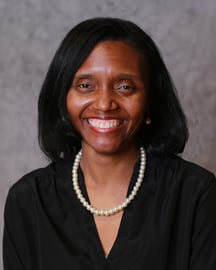
Adria Welcher
Committee Chairperson
Joana Blankson
Committee Member
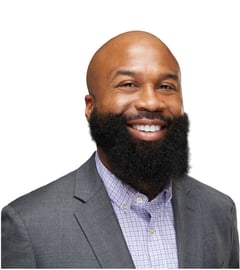
Derrick Bryan
Committee Member
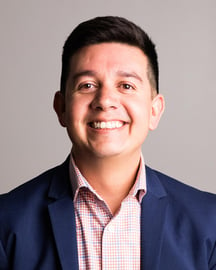
Jaime Chavez
Committee Member
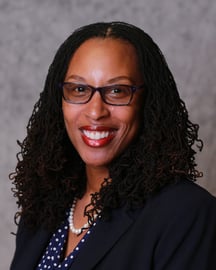
Tanya Clark
Committee Member
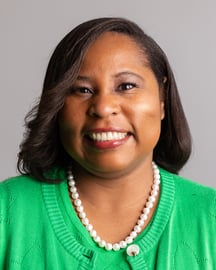
Natasha Crosby
Committee Member
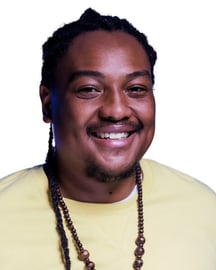
Kyree Davis-Townes
Committee Administrator
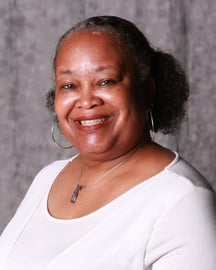
Sonya Dennis
Committee Member
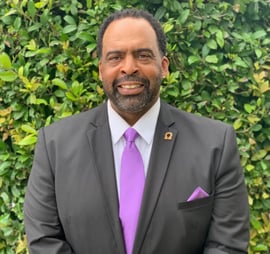
Michael Douglas
Committee Member
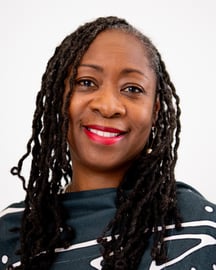
Monique Earl-Lewis
Committee Member
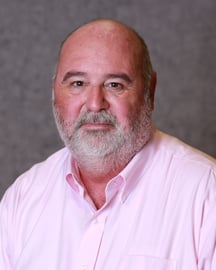
Keith Hollingsworth
Committee Member
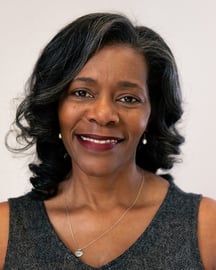
Regine Jackson
Committee Member
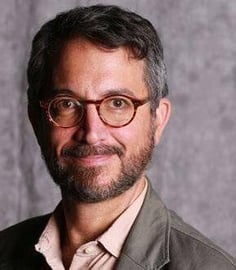
Michael Janis
Committee Member
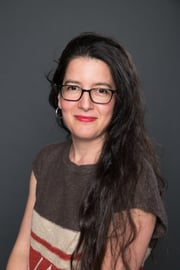
Maria Korol
Committee Member

Emmanuel Obi
Committee Member
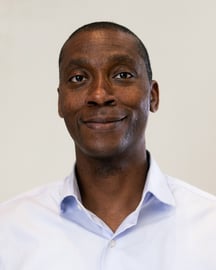
Matthew Platt
Committee Member
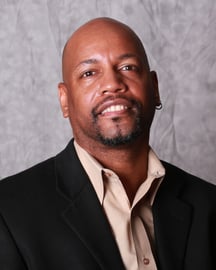
Corey Slayton
Committee Member
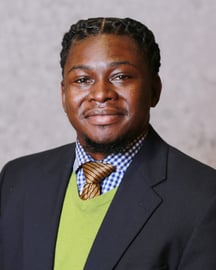
Ethell Vereen
Committee Member
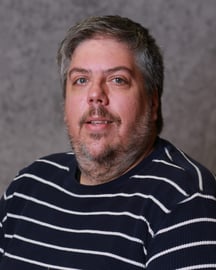
George Yuhasz
Committee Member